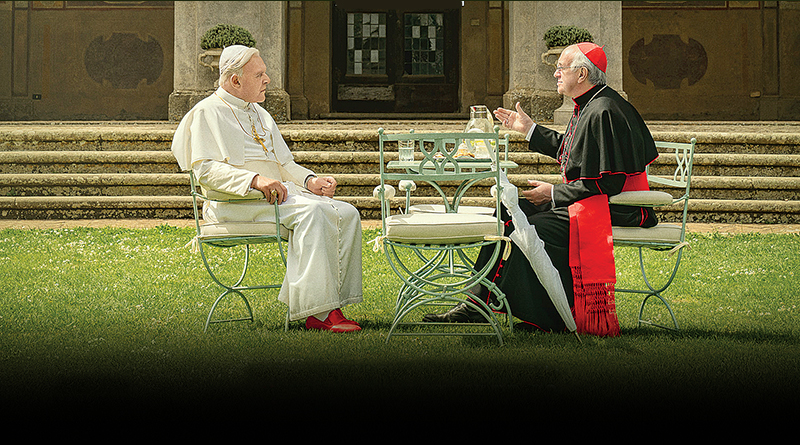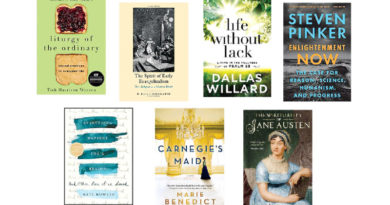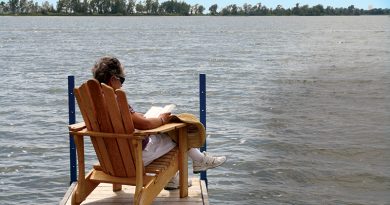The Two Popes
Directed by Fernando Meirelles
Written by Anthony McCarten
Starring Anthony Hopkins & Jonathan Pryce
Streaming on Netflix since December, 2019
Reviewed by Peter T. Chattaway
IT HAS BEEN seven years since Pope Francis became head of the Roman Catholic Church, and the media’s love affair with him hasn’t ended. Two years ago, German filmmaker Wim Wenders produced a documentary, Pope Francis: A Man of His Word, that studiously avoided any of the controversies that had begun to emerge during Francis’s papacy. And now there is The Two Popes, a drama in which Francis’s rise to the papacy becomes a sort of odd-couple comedy featuring Francis and his more conservative predecessor, Pope Benedict XVI.
The title might lead you to think that this film will be a relatively balanced look at the two men, but it is very much Francis’s movie. Francis – who, not being Pope yet, goes by his birth name Jorge Bergoglio for most of the movie – is played by Jonathan Pryce as an affable man of the people. He always has time to talk about soccer, gardening, takeout food and so on, and he is granted extended flashback sequences (in which he is played by Juan Minujín) that show how he came to be a priest in 1950s Argentina, and then how he struggled with his role as a Jesuit leader during the political turmoil of the 1970s when priests, nuns and other dissidents were being murdered by the military dictatorship.
Benedict, as played by Anthony Hopkins, is kept at a comparative distance. He is rarely seen in the company of anyone outside of his staff – he never even spends time with fellow clerics, aside from Bergoglio, after becoming pope – and he is unfamiliar with the pop-culture references that Bergoglio throws his way. There is also very little insight into Benedict’s personal history. Instead, he talks every now and then about how he doesn’t hear God’s voice any more like he used to – which, in itself, underscores the film’s general depiction of Benedict as a person who is remote, isolated and cut off from other people.
Along the way, the film – directed by Fernando Meirelles (City of God) from a script by Anthony McCarten (Bohemian Rhapsody) – touches briefly on various hot-button issues, and in ways that overemphasize the perceived differences between the two men. To see this film, you would think that Francis was diametrically opposed to Benedict not only on whether to serve communion to those who are divorced and remarried, but on subjects like abortion, homosexuality, the environment and whether to discipline sexually-abusive priests. The truth, as many Catholic writers have noted, is a lot more complex than that.
What’s more, the film’s depiction of Bergoglio as a liberal opposed to traditional Catholic culture goes beyond merely moral and social issues to touch on the supernatural, as well: at one point he says there was no mention of angels in the Church until the fifth century, and now, he complains, angels are everywhere. How does that square with the New Testament, which even the most skeptical scholars say was written by the second century?
It may be instructive to compare The Two Popes to similar speculative movies like, say, The Queen. That film, written by The Crown’s Peter Morgan, focused on the relationship between Queen Elizabeth II and the newly-elected Prime Minister Tony Blair in the aftermath of Princess Diana’s death, and it presented a similar clash between stodgy traditionalism and progressive populism. But it did so in a way that generated sympathy for the traditionalist while keeping a critical eye on the populist. More than that, the film cast a critical eye on the media, warning that it could turn against the very people that it once puffed up.
The Two Popes has none of that complexity or balance, and it is basically content to go with the media flow. The film uses archival news footage to frame the conclaves (where new popes are elected) as moments of decision “between tradition and reform,” and the general anti-Benedict and pro-Francis thrust of those reports is passed along uncritically.
All that being said, The Two Popes is certainly a fairly entertaining film, and it’s no surprise that the scriptwriter and the two lead actors were all nominated for Academy Awards. There is humour in the way Benedict occasionally cuts Bergoglio off just when the latter is trying to get his attention, and in the way Bergoglio tries to show the aging Benedict how to tango.
Plus, the scene in which Benedict reveals that he intends to resign from the papacy – something no pope had done voluntarily since the 13th century – represents a stunning role reversal: suddenly Benedict is the one breaking from conventional norms, and Bergoglio is the one arguing in favour of tradition. (Incidentally, while Benedict is German and Francis is an Argentinian of Italian descent, both of the actors playing them are Welsh.)
But the light humour tends to reinforce how ultimately frivolous the film is in its approach to the tensions and divisions within modern Christianity. Wouldn’t it be nice, the film says, if the conservatives simply stepped aside and let the progressives run the show; then we could all watch soccer games together, share a few laughs, and all would be well.
It happens a few times in the film that Bergoglio tells Benedict a joke, and Benedict, after processing it for a few seconds, chuckles and dismisses it as just a silly bit of humour. Alas, The Two Popes itself is similarly dismissable, but it could have been more. TAP




